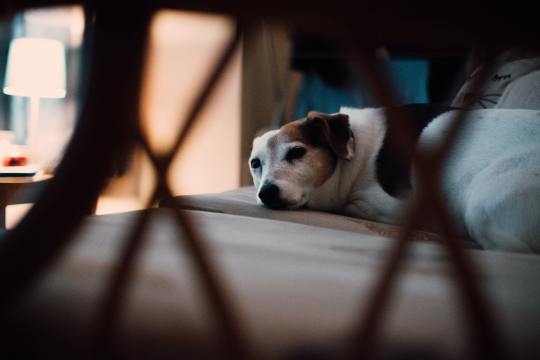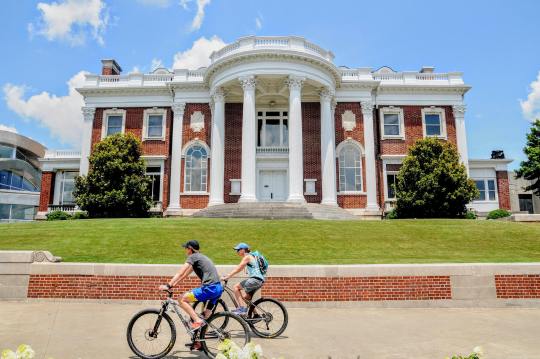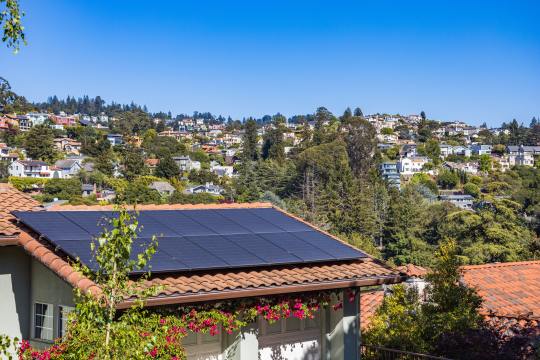Don't wanna be here? Send us removal request.
Text
Five Indications That a House Isn't Worth Buying
While many buyers are eager to renovate their homes, some problems aren't worth the money. Purchasing a home with these issues can leave owners broke and filled with regret.

1.Outdated electrical or plumbing systems. Homes constructed more than a few decades ago may include plumbing constructed of materials that are now recognized to be troublesome, including polybutylene or galvanized steel pipes, which have the potential to burst, leak, or corrode and cause substantial water damage. The same goes to electrical system where the cove smart security equipment and appliances are connected.
2. Empty underground swimming pools. Once filled, the areas where the water line and tile border did not match were visible. In addition to being highly costly, leveling an inground pool has the danger of damaging the plumbing. It is advisable to stay out of this issue completely.
3. Cracking or sagging. When a home has significant structural problems, such as a sinking foundation or drooping floors and roofs, it is a massive red flag. Problems of this nature may indicate that a home is unsafe for habitation. Structural damage repair is very costly and dangerous since, once the job is underway, it may uncover further problems.
4. foundation is not level. Look out for flooring that are level in an adjacent room but slope in the one next to it. Additionally, leveling the foundation can cause floor tiles to chip, drywall to fracture, doors to become misaligned, and other major disruptions that would require redoing the entire house.
5. Hazardous material. Although these materials were often found in older homes, their removal calls for specific procedures that might significantly raise the cost of renovations. Additionally, they present health dangers during reconstruction, which calls for the services of experts in the disposal of hazardous materials.
When a property has significant problems, it's critical to evaluate each item that will require replacement or repair and determine whether doing so will be financially worthwhile.
#OlderHomes#Vintage Homes#Home Lifestyle#Interior Design#Home#Smart Home#Home Automation#Home Security System#security system
0 notes
Text
Four Advantages of Home Waterproofing
There are a number of unexpected advantages to waterproofing your house that you might not have realized. Take a look at these four surprising advantages of house waterproofing!

1.Make your home a healthier place. Although there are no outward signs in the affected area, the bacteria is still present. Numerous medical disorders, including eczema, asthma, bone diseases, fever, and others, can be brought on by extended contact to mold. By reducing the possibility of mold growth in moist parts of your house, waterproofing can enhance the air quality inside.
2. Make your property more valuable. Your home's market value will increase slightly when it is waterproofed and secured by cove smart security system in addition to providing an additional safeguard. Waterproofing expenses are typically covered by the sale price of your home if you decide to sell it in the future. It is an intelligent investment that holds its value over time.
3. Steer clear of expensive flood repairs. According to insurance company statistics, 24% of all house insurance claims involve flooding-related damages. By having your home waterproofed by a professional, you can reduce the danger of water and flooding damages and potentially avoid paying a higher premium for your home insurance.
4. Reduce your heating and air conditioning expense. The chilly winter and scorching summer seasons are when electricity expenses are highest. But simply waterproofing your house, you can save your energy bills for heating and cooling. Your AC's efficiency is less likely to be hampered by humid interior air because the possibility of moisture incursion is diminished or eliminated.
Although many individuals believe waterproofing is an optional task, it may seem like a valuable addition to your property. After all, whether or not it is waterproofed, their house is still livable and attractive.
#waterproofing#home maintenance#home improvement#home upgrade#homeowners#home safety#home security system#security system#home automation#modern home
0 notes
Text
5 Ways to Avoid Plumbing Issues
Plumbing issues frequently arise for households. They wind up spending a lot of money and other resources as a result of some. Thankfully, there are a number of preventive steps you can do to stop plumbing issues before they start.

1. Fix small issues right away. Minor problems, like tiny leaks, can develop into frustrating major plumbing concerns. You run the risk of developing a more serious plumbing issue in another area of your property if you ignore a little issue in one area of your house.
2. Take cautious when using plumbing cleaners. Cleaning products are used to remove debris from plumbing systems. They can damage your plumbing systems in the end. This is due to the possibility of your plumbing systems' walls becoming damaged if they are used excessively. To avoid plumbing issues, carefully use plumbing cleansers.
3. Drains should be cleaned often. You can stop problems with water flow by doing this. It also aids in preventing the growth of sizable clots. All you have to do is establish a cleaning schedule and regularly clear your drains. One strategy to increase the value of your property is to keep your plumbing systems and cove smart system in good shape and functioning.
4. Keep grease off of your drain. Your pipes become stuck with grease, which creates a covering that traps food particles and reduces water flow. Find a better method if you wish to dispose of grease. Use old jars to collect it, and then discard the jars elsewhere. To identify the proper locations to dispose of grease, you can also contact the necessary authorities.
5. Do not flush tissues. Your septic tank will become clogged if you keep flushing wipes. This is because they could result in a serious plumbing issue that needs to be treated by a professional plumber. Bacteria that can harm your pipes and septic tank thrive as a result of it. To correct this, a qualified plumber is needed. You might need to replace the septic tank in extreme circumstances.

While some of them are simple to cure, others may need expert assistance to guarantee that they are fixed correctly and to prevent recurrence.
#plumbing#home maintenance#plumber#home improvement#home security#security systems#smart home#home automation#life and living#modern home
0 notes
Text
5 New Real Estate Technology Trends
Technology will continue to fundamentally alter multifamily, residential, and commercial real estate over the coming years. You can maintain your building smarter, cleaner, and safer thanks to new technology. Here are five modern real estate technology trends:

Virtual and augmented reality: Imagine having access to a property's virtual tour without physically visiting it. People can travel the globe using virtual reality (VR), giving them the impression that they are somewhere else. Even if they are on the other side of the planet, buyers can utilize virtual reality to tour a property as if they were actually there. Companies may show off the neighborhood and provide virtual home tours using VR, letting customers walk down the street.
Artificial intelligence: Internet searches, social media, and connected devices generate enormous amounts of data that are extremely useful. These data may be quickly combed through by AI to find trends and predict future movement, for example. When it comes to real estate, this could involve foreseeing trends that have an impact on housing/rental pricing as a result of neighborhood expansion, which results in more properly priced inventories.
Internet of Things: IoT refers to electronic gadgets that communicate with one another online. IoT now makes it possible for inhabitants and property owners to use their smartphones as mobile video intercom systems. The Internet of Things (IoT), which includes self-driving cars and smartwatches, is fundamentally altering our way of life. These gadgets can communicate with other smart appliances and gadgets inside a building because they are cloud-based.
Apps and social media: People can now easily contact businesses by using apps and chatbots rather than waiting for them to open before calling and placing a hold. To identify the ideal property, discuss finance, and learn about renovations and projects you're interested in, utilize an app. To find the solutions you require to proceed with the transaction, you can easily use an app and bot.
Blockchain: A distributed ledger called blockchain enables transactions between two parties to take place in a verifiable and permanent manner. Professionals in the real estate industry are no longer need to use Excel spreadsheets or, worse, pen and paper. Instead, workflow automation and safe data transfer for things like account numbers and titles are offered by blockchain technology.
Real estate agents can use social media as a potent marketing tool to draw in and keep new residents. In a few years, real estate will look entirely different with cove smart integration. These patterns will increase productivity and create a sector where owners and tenants are content and properties are protected.
#technology#realestate#virtual reality#artificial intelligence#social media#blockchain#rentalproperty#smarthome#covesmart#homesecurity#internet of things#modernhome
0 notes
Text
Homeowners Insurance: What You May Not Know
Dwelling, additional structures, personal property, loss of use, personal responsibility, and medical payments are the six sections that make up a typical policy. Let's examine the topics covered by each of these sections and what you might not know about them.

Personal possessions: A home inventory, which is a list of your goods, is one way to be certain. You should include pictures, serial numbers, and receipts in your inventory. For some expensive products, such as jewelry, furs, works of art, and collectibles, there may be distinct limits. Your domestic items outside of the premises can be covered by our policy.
Medical payments: The standard coverage limit for policies is $1,000, however it can be raised to $5,000. The spread of contagious diseases is not covered by this coverage. The fact that a policy involves more than just appeasing your lender should give you some peace of mind.
Household coverage: Dwelling insurance covers damages due to theft as well as damage to your home's structure from wind, rain, fire, and other concerns, even meteors. Flooding and earthquakes are NOT covered by typical homeowner's insurance. You'll require separate coverage and asked your specialist if you qualify for a discount if you have a cove smart system.
Loss of use: This portion of your policy would pay for expenses like hotel rooms, meals, etc. if your house is severely destroyed by a fire or another covered peril to the extent that you are unable to live there while it is being restored. Coverage may have a temporal frame.
Personal liability: Homeowners insurance could help you if you are held responsible for someone else's injuries or property damage. Standard insurance policies begin with a liability limit of $100,000. Please inform your service provider that you have a dog, even if it is one that is on the blacklist.
Other structures: Other buildings on your property, such as gazebos, sheds, and detached garages, are frequently also protected against those same risks. Although you can expand it, the typical maximum for this policy is typically 10% of your home coverage.
When you acquire homeowner's insurance, it frequently benefits you in ways you weren't even aware of. There is more to a policy than just appeasing your lender, therefore you should take solace in that.
#home#homeinsurance#smarthome#homeautomation#homeupgrade#homesecurity#CoveSmart#CoveSecurity#Homeownership#HomeImprovement#ModernHome
2 notes
·
View notes
Text
What Impact Does a HOA Have on Your Home Purchase?
What exactly is a HOA? An HOA is a legal entity that governs a shared housing complex, such as a condo building, a row of townhouses, or a suburban home development with shared space. An HOA governs almost all townhomes and every condo with cove system. An HOA receives monthly dues from its members to fund its activities.

How does a homeowners' association work? When you buy, you instantly become a member of a HOA. An association's structure might vary based on the total number of members. Larger associations will also include elected board members who make decisions about the organization's activities.
What is a reasonable amount for HOA dues? It is dependent on what you receive. Your dues will be greater if you live in a condo building with a doorman and a swimming pool. On the other hand, if your condo building merely has a shared front yard and common hallways to access to the units, your HOA fees should be much lower. If you are unsure, consult with your real estate agent to determine what is reasonable.
What are the rights and responsibilities of a HOA? An HOA is a legal entity that must be registered with the Secretary of State. Some of these guidelines will have an immediate impact on how you live. Some HOAs may even require that all units be inhabited by the owner. The regulations, limits, and enforcement vary substantially by association, which is why it's critical to carefully read the CC&Rs before you buy.
What do I get for my HOA dues? An HOA should have property insurance for the common spaces as well as liability insurance in case someone slips, trips, or falls on the shared property and decides to sue. The typical rule of thumb for condo owners is that everything within your property is your responsibility, while everything beyond those walls is the responsibility of your HOA.
#HOA #Homeowners #HomeownersAssociation #Home #RentalProperty #SmartHome #BetterHome #HomeAutomation #Home&Living #HomeSecuritySystem #SecuritySystem #ModernHome #HomeImprovement #HomeSafety
2 notes
·
View notes
Text
5 Ways to Prepare Your Home for a Furry Friend
Puppy adoption requires dedication. Leashes, collars, bowls, and other essentials should be purchased, but you need also make sure your house is "puppy proof." When preparing for your new arrival, remember these necessities:

1.Locked bathrooms. A puppy that is parched may hunt for water in many locations, especially your toilet. The simplest strategy to stop using the restroom to drink is to keep the water dish continuously full. However, it's still a good idea to keep the toilet lid down and the doors to your bathrooms closed.
2. Safety yards. Fix any malfunctioning or slack gates. Keep a water bowl outside, particularly on warm days. Place a doghouse in a protected, shaded spot. Use tarps or fencing to cover your pool. Make sure your fence is sturdy. To help your dog stay cool, create more spaces that are shaded.
3. Puppy-safe zones. Puppies enjoy spelunking. You could put your dog in danger if you don't lock bedrooms or gate the stairs. Select the portions of your house that are dog-friendly, then fence off the others. Establish puppy-safe areas before bringing your new dog home.
4. Safe kitchens. Dogs should avoid eating some human foods, such as chocolate, grapes, and avocados. Invest in childproof locks for your cabinets if you can't completely seal off your kitchen. Keep enticing food off of counters as well.
5. Poison-free homes. Due to their innate curiosity, puppies can mistake pesticides and other harmful chemicals for treats or chew toys. In your garage, keep your dangerous chemicals and insecticides. If your dog does accidentally consume poison, contact the ASPCA Animal Poison Control hotline right away.
A puppy requires a lot of responsibility to raise. Puppy proof your home in advance to prevent any potential accidents or headaches. Know who comes by unexpectedly, whether it's a neighbor or an intruder. Convenient methods for rapidly contacting authorities or arming and disarming your cove security system.
#home & lifestyle#home improvement#home security#home safety tips#home insurance#home#home automation#smart home#better homes and gardens#petfriendly
5 notes
·
View notes
Text
The Ideal Season for All Home Renovation Projects
Being a homeowner comes with a never-ending list of home improvement jobs, and it can be challenging to time them properly. Consider which season has the correct weather patterns when planning projects if you want to maximize your chances of success.
Interior paint. The fact that you have air conditioning and heating is a benefit of painting inside. Painting interior spaces in the winter, when the air is the driest, will help reduce indoor humidity concerns.
New appliances. Keep an eye out for deals even if you are not remodeling your kitchen. Customers may anticipate reductions on everything from refrigerators to oven ranges and washing machines in the run-up to the holidays.
HVAC care. Your HVAC system should be repaired as soon as you spot a problem, but if you want to perform periodic maintenance, make an appointment with a professional well in advance of when you'll need to turn on the heat. May you also have plans adding your cove security devices for added protection.
Cleaning out gutters. Over time, the gutters along your roofline assemble leaves, twigs, and other detritus. The drains may become clogged if they are overloaded. When leaves are most prone to get into your gutters in the fall and early spring, clean them out to prevent any issues.
Roof replacement or repair. The busiest season for contractors also happens to be the best time of year for roof replacement or repair. Plan your roof replacement a month or two in advance to prevent having to wait while potential leaks could cause harm to your home's inside.
Electrical updates. Almost any time of the year is suitable for electrical work, with the obvious exception of rainy or stormy weather for safety reasons. Client demands increase significantly in the late spring and early summer, as well as in the late summer when people are on vacation.
#home improvement#home security#home & lifestyle#security systems#season#weather#temperature#s#smart home#home automation
1 note
·
View note
Text
How to Get Ready for a Hurricane?
It could be difficult to conceive that your house, where you feel the safest, could be destroyed by strong winds or inundated by floodwaters during a severe storm. In the wake of a hurricane, tornado, or other severe event, there are numerous actions that need to be taken for both preparation and repair of your home.
Get home insurance coverage. When you buy a house, mortgage lenders frequently demand that you get homeowners insurance. But it doesn't imply you automatically have the insurance that will repair significant wind or flood damage to your house. Check the inclusions in both your homes and flood insurance policies.
Move items to higher ground. Your house is more likely to flood initially where it is lowest. Move your possessions to the highest spot you can, whether that's an attic, a second floor, or the upper level of a split-level house. However, books, decorations, linens, and other goods can simply be stored at a higher level. Avoid attempting to transport heavy furniture upstairs on your own.
Follow emergency instructions. You should leave your home as quickly as possible if authorities advise you to do so before a storm or other potential natural disaster. Depending on the kind of incident, the area, the resources available, and many other variables, staying safe will vary. , pay attention the emergency management resources, and follow their advice on how to keep safe.
Prepare everything. Prepare yourself for any period of time without power, fresh water, or a source of food in addition to preparing your home. Make sure you have enough prescription medication to last for more than a few days if you take any. Reinforce your glass door and windows to prevent them from breaking due to a storm and safeguard your doorbell camera.
Documents all your belongings. Take an inventory of everything you own to increase the likelihood that your insurance will cover all damage. You need to keep in mind how you got it in the first place. To make it simpler to zoom in and take a screenshot later, if necessary, open cabinet and closet doors, and pan gently. To make finding replacements simpler, enlarge serial numbers on appliances.
#weather#severe storm#preparedness#emergency#hurricane#home insurance#home improvement#home security#home & lifestyle#home safety tips#security camera#outdoor camera#camera
1 note
·
View note
Text
Do Outdoor Surveillance Cameras Require WiFi?
Normally, WiFi is not necessary for outdoor camera that are just utilized for recording. The main difference is that there won't be remote access; the cameras will still transmit recorded video to the recorder. However, services like remote streaming, alert notifications, and more require such a link, either at the central recording system or directly through the camera. With the current generation of outdoor security cameras, a wireless connection is simple, but a direct link offers superior security and enables a dependable connection that can only be lost by losing power or tampering.
Five megabits per second is the minimum upload speed recommended by security industry experts for both indoor and outdoor surveillance cameras. For remote viewing, that upload speed will be functional, but at sub-stream or lower resolutions. The bitrate calculator takes into account all three of these elements and tells you the precise upload speed needed for high-quality video via a wireless connection, remote viewing, and more.
At least 60% of the 422 poled previously convicted criminals would be deterred from a company or house by the presence of indoor and outdoor security cameras. Furthermore, an audio alert system would deter that many participants even more. The majority of thieves are discouraged by outdoor security cameras, according to law enforcement experts, especially when they are used in conjunction with other systems.
Outdoor security cameras typically have a built-in resistance to rain or are completely impervious to it. The devices will resist typical weather conditions while not being naturally waterproof, but some software features might be limited. In addition, lightning from thunderstorms will damage security cameras. Additionally, it should be emphasized that inside security cameras shouldn't be utilized outside because they can't endure rain.
#wifi connection#security camera#home security#home safety tips#outdoor camera#indoor camera#camera#diy ideas#surveillance
0 notes
Text
How Can Door Sensors Help You with Security?
The contact sensor's fundamental mode of operation is to sound an alarm whenever a door is opened without permission. This kind of alarm is utilized frequently in commercial and residential structures and offers the strongest perimeter security for your facility.
Door sensors help to create safe homes and workplaces by providing intrusion warnings at frequently opened access points. They can be used with cupboards, windows, and doors just as effectively. An alarm that sounds while the door is held open can alert the receptionist to a visitor who has just entered the facility, giving them time to attend to other obligations. The monitoring system will alert the controller if an intruder attempts to violently enter an office door that he or she is not allowed to use. Alarms for doors left open let you specify longer delivery periods for items and shorten them once the delivery is finished. They protect against piggybacking or tailgating, one of the most frequent security intrusion incidents.
Door alarms are reliable anti-burglary defenses. The sensors can turn on a spotlight, a loud alarm, a phone call, or any combination of the three when a door is opened during a burglary attempt. A private security company, law enforcement, or the owner's phone can all be linked to the phone call system.
0 notes
Text
Step by Step to Install Indoor Cameras
Choosing where to place the cove smart security cameras is always the first thing to do. In reality, we perform this before to purchasing in order to ascertain details such as the number of cameras required and whether or not we require extra-long power cables.
On the first floor of your house, indoor security cameras are preferred.
Try to install cameras in popular areas like the living room or main corridor if your home has more than one floor. In such situations, you are more likely to capture the faces of perpetrators, making it simpler to convict them.
Since the master bedroom is the area where valuables are most frequently kept, install a camera right outside of it.
Install the camera high up so that a burglar can't easily break or disable it. This is particularly crucial for cameras that store their footage on an internal memory card. Basically, you should cover any area that a burglar could enter through a door or a window.
Place cameras in corners for the broadest field of view possible.
Install cameras on the stairs as well to keep tabs on home burglars.
Remember that most interior cameras cannot detect motion through glass since it interferes with heat-based motion detection. However, because doing so might seriously jeopardize privacy and is against the law in several areas, we don't advise installing security cameras in bedrooms or restrooms.
0 notes
Text
What to Look for When Choosing the Best Senior Living Facility for Your Parents
The longer, healthier lives of many seniors may prevent them from moving into independent living facilities sooner. Your parents may choose to move into a senior living facility now that they are older.
Assisted living. The best option might be a community with full-service assisted living. For someone who is accustomed to live alone, it is a tradeoff. But in a private apartment or suite, your parents will continue to feel independent and private. These include taking a shower, getting dressed, and preparing meals. In contrast to nursing facilities, there is frequently more privacy, comfort, and a homey feel. It might be time to move your parents closer to your house if they don't currently reside close by.
Memory care. Has your parent been identified as having Alzheimer's or another form of dementia brought on by aging? If the following questions apply to you, memory care programs inside particular facilities may be worth your consideration:

Is it necessary to have cove smart 24-hour surveillance for safety reasons?
Is aggression, roaming, or Sundowner's Syndrome a problem?
Are important pursuits no longer appealing?
Is your family under stress as a result of caring for your parent?
Communities for seniors with ongoing care. Continuing care retirement communities, or CCRCs, are popular because they provide a variety of care. There is also a nursing home level available for people who require even more care. Residents of the community can choose the amount of care that best suits them. CCRCs are made to accommodate different life stages without requiring a move to another facility.
Living independently. Ask your elderly parent the following questions if they are still engaged. These might aid in determining whether independent living is still a sensible option. Can you take care of your personal needs on your own? Can you keep up with your daily drug and prescription needs? Are you keen about exploring the world and having fun? How significant is it to you to lead an active lifestyle?
#senior living#senior#nursing#nursing facility#assisted living#emergency#health & fitness#health#home improvement#home safety#home security
0 notes
Text
How to Make Your Apartment Baby-Proof?
Make sure your apartment is secure and safe for crawlers and toddlers as your baby gets bigger. Here are some baby-proofing essentials your flat while your developing child explores the environment.

Cover electrical outlets. To prevent your baby or toddler from playing with electrical plugs, all floor-level outlets should have covers on them unless they are in use, in which case they should be prevented from access. Most internet retailers sell baby-safe outlet covers. The sliding panel outlet cover is among the most well-liked outlet covers on the market.
Trim or conceal any sharp edges. A clumsy baby learning to stand or walk and furniture with sharp corners is not a good mix. Replace your square or rectangular coffee table with a round one, if possible. You may always purchase safety guards to make sharp corners into soft corners if you are unable to part with your furniture or your flat has no choice but to have sharp edges.
Install cabinet baby locks. The most dangerous room in the house is the kitchen, especially for young children. There should never be an unaccompanied baby running about on the kitchen floor. Accidents occur so quickly, and the last thing you want is for your youngster to hurt himself on a sharp item or get into cleaning solutions under the sink.
Examine from a baby's perspective. Crawling around your apartment's floor is one of the finest ways to spot potential dangers. While standing straight, five or six feet above the ground, you might not even notice dog bowls, nails, wires, dust, or other little objects. Babies have excellent close-up vision for small objects. They'll look at things that, if you weren't looking for them, you might not even notice.
Close the bathroom doors. The second-most dangerous location for an infant or toddler to explore is the bathroom. Baby-unfriendly items include medicine cabinets, showers, tubs, faucets, and chemicals. The greatest approach to protect your baby from the restroom is to develop the habit of always locking the door. In addition, installing locking cabinet locks and doorknobs might provide you additional piece of mind.
You learn that you must adapt to your baby's always shifting routine just as you become accustomed to his or her feeding schedule and diaper changes. You may get ahead of the game and make a baby-safe apartment before your child has an opportunity to get hurt or damaged by thinking like a curious baby. Consider installing cove smart home security system, a DIY system that you can customize and choose devices.
#babies#baby#babyproof#bathroom#interior#safety tips#apartment#living#home security#home safety#cove smart
0 notes
Text
Why People Choosing Nashville to Live? 6 Reasons
Due to the popularity of vacationing in the Volunteer State, Nashville is home to the second-largest industry in the world. Nashville has a distinctive and lively culture that hints at a better way of life. A recent survey found that the following factors are the main reasons why more people choose to relocate to Nashville:
Perfect for retirement location. Nashville is the most affordable and greatest state in the US for retirees, according to a Bankrate report. There are just too many benefits for retirees to relocate to Nashville, including affordable housing, low taxes, and pleasant weather.
Affordable living. The cheapest state in America is Nashville. The essential variables developed by the Nashville Comprehensive Ranking, such as average food, housing, utilities, transportation, and health care, were far below the national average. In Nashville, you'll get more for your money.
Beautiful landscapes. More individuals are relocating to Nashville as a result of its beauty and popularity as a tourist destination. The locations of popular attractions including Radnor Lake, Bells Bend Park, Montgomery, Hill Forest, John Noel, and Beaman Park are listed here.

Minimal tax burden. State property taxes and income taxes are not advertised. Additionally, Nashville provides a number of tax advantages for startups and growing companies. Nashville is a popular destination for avaricious businesspeople who don't want to pay state taxes.
Job opportunities. Due to its professional business policies and a significant mass of competent workers, Nashville has recently seen an influx of technology and financial firms. Few of Nashville's large corporations have a talented workforce, and these well-known businesses are actively recruiting new employees.
Live music culture. If you enjoy music of the rock & roll, blues, country, and Memphis soul genres. Nashville is the only city that takes live music and soul cuisine seriously, and it is the unmistakable engine of new music. You'll adore Nashville's live music scene if you like spicy chicken, honky tonks, saloons, and other types of entertainment.
Moving or purchasing a home in Nashville might be done for a variety of reasons. Both young professionals and retirees are beginning to travel to Nashville. Additionally, it has been suggested that the area's low crime rate is largely attributable to the installation of cove smart home security systems.
#nashville#beautifulplaces#retirement#destination#travel#home#adventure#living#home safety#home security#home & lifestyle
0 notes
Text
Is It Worth To Have a Solar Panel Insurance?
Homeowners that install solar panels benefit from reduced energy use as their house value rises. If you reside in a state that is subject to severe weather events like hurricanes, blizzards, and hail, solar panel insurance is worthwhile.
Rooftop panels or tiles are regarded as a home improvement because they are permanently attached to the house, similar to a cove smart security system. The solar power system is covered by the homeowner's insurance policy, which is necessary when there is a mortgage on the property.

What will a policy for solar panels cover?
If you need to make a claim, the insurance you had before to installing a solar panel system might not be sufficient to pay for replacement or repair costs. If solar panels are harmed by a falling tree, hail, fire, wind, or lightning, insurance will pay for repairs or a new system. Before receiving a payout from the insurance company, you must first meet your deductible. The ability to insure against storm or other catastrophic event damage with this investment may influence your decision to add solar panels to your home.
Do homeowners policies cover solar energy?
Most solar panel systems are covered by homeowner's insurance, but not all of them. Your investment in solar carports or ground-mounted solar panels can be safeguarded by extra insurance. If your current policy can cover the solar panels, your insurance agent can go over your options. Floods and earthquake damage are typically not covered by standard homeowner's insurance plans. The majority of insurance providers offer an add-on to offer additional coverage. A typical home insurance policy may not cover wind damage in some hurricane-prone states.
Benefits of Using Solar Panel
There are numerous advantages of using solar energy, including: enables homeowners to live off the grid, utilize solar energy to heat water, run vehicles and power homes and businesses. Additionally, using batteries at night for extra power is an alternative to regular energy and is safer. Homeowners can use rebate programs, tax incentives, and government subsidies to assist with start-up costs. It is 24/7 accessible clean renewable energy that could be deployed everywhere.
0 notes
Text
Maintenance Ideas for Your Deck
Decks offer outdoor living areas with relaxing décor. They can give you more room for outdoor furniture, an additional space for entertaining visitors or spending time with family, and a more appealing aesthetic element to your house. Try these inexpensive suggestions for deck maintenance to save money.
Regularly clean your deck. Cleaning your deck on a regular basis is one of the more obvious deck maintenance suggestions. The natural sheen of your deck can be preserved with regular maintenance such as weekly brushing of loose dirt and debris. Making sure to occasionally rotate your deck furniture is another crucial step.
Seal your deck. The sealing of your deck is a crucial component of deck ownership. The wood on your deck is shielded from various pollutants, such as dirt and sun damage, when you seal it. A deck can avoid warping, cracking, and splitting by being sealed. The underlying materials are likewise waterproofed by it. Without a sealer, the wood would wear out faster, will change from the original hue to a grayish color, and eventually splinter, warp and rot.
Make necessary repairs. Another key thing that can assist maintain your deck is to undertake frequent inspections. Simply inspect every component of your deck to ensure that nothing appears to be loose or cracked. Look for boards that are rotting, fractured, or loose. Fix or replace little problems right away. Replace any rusted nails or screws since they endanger the deck's stability and cause the wood's color to fade. Make sure all screws are tightened, and replace any broken boards.
Avoid pressure washing. Wood can become softer under high water pressure, making it more prone to damage. The ideal cleaning tool for a deck is a straightforward garden hose with a sprayer, despite the fact that some people prefer to use a power washer. Wood, especially delicate types like cedar, can be harmed by pressure washing.
Schedule an annual deep cleaning. Scheduling an annual deep cleaning of your deck is the last maintenance task you need to complete. Your deck can be swiftly and effectively restored by using a professional cleaning service. Even if you perform routine maintenance on your deck, it is still beneficial to hire a professional cleaner occasionally to get it extra clean and to save you time.
A well-built deck may last for many years with regular upkeep and a few judicious additions. Spend some time each year washing, cleaning, mending, sanding, and sealing your deck to keep it safe and extend its life. Protect your home and valuable from burglars by installing a cove smart home security system that fit your needs.
0 notes